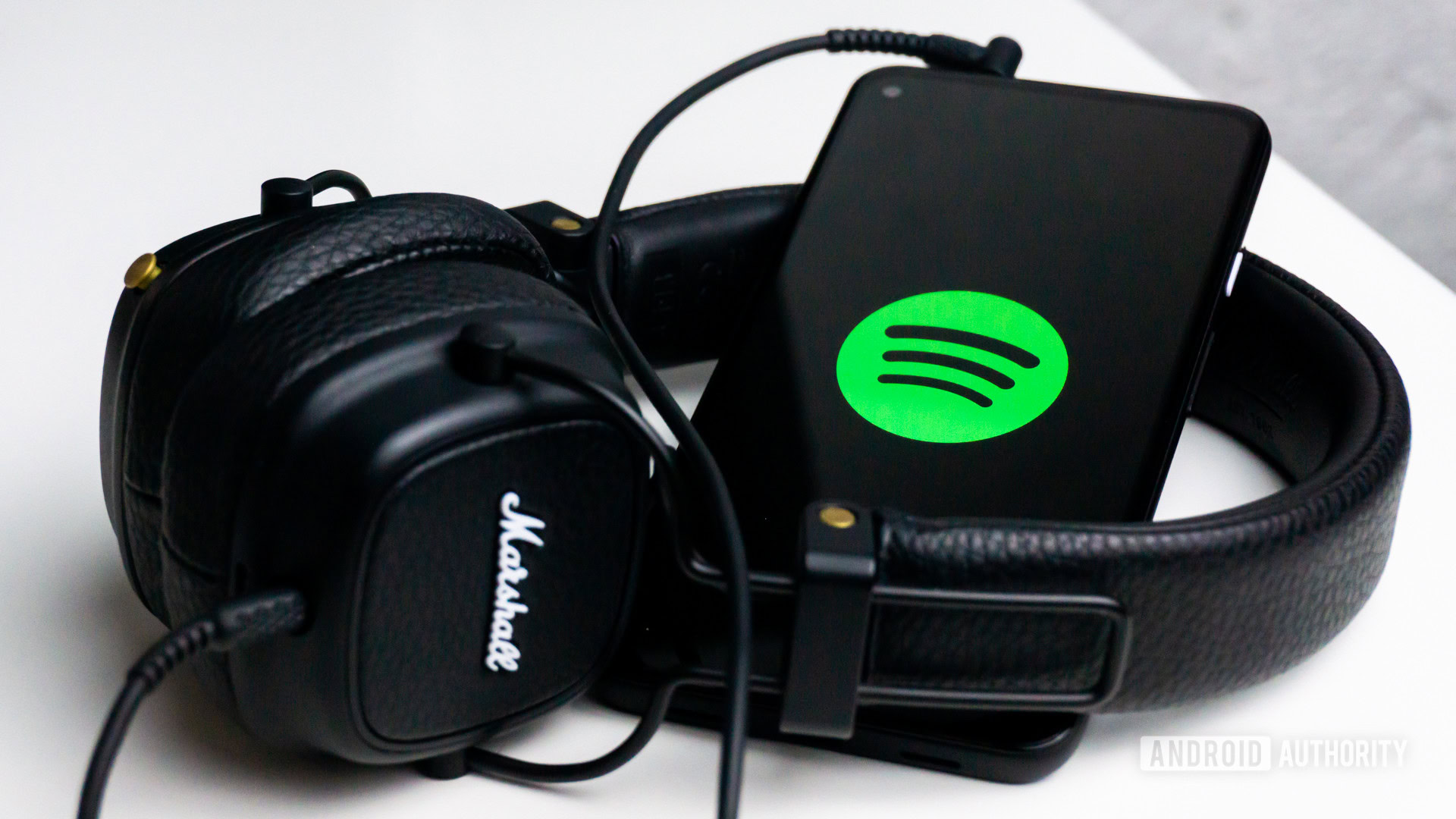Affiliate links on Android Authority may earn us a commission. Learn more.
Spotify's AI DJ has me yearning for a Gemini-infused YouTube Music
June 16, 2024

When Google shut down its Play Music app in 2020, I switched to Spotify — like many others, almost out of spite, but also because the new platform wasn’t nearly as fully featured as the one it replaced. But nearly four years have passed since then and Spotify’s frequent price hikes have finally made me consider switching to YouTube Music instead. After all, I already have a YouTube Premium subscription for ad-free videos. Just a week into the switch, however, I realized how much I’ve come to rely on Spotify’s recent AI features. And surprisingly, even though Google has made a big deal about AI in recent months, YouTube Music hasn’t witnessed the same pace of innovation.
Case in point: Spotify’s AI DJ became my go-to every time I started a new music session. In case you’ve never used it, the DJ is a relatively new feature that creates a simulated (but personalized) radio station. It analyzes your listening habits to curate a stream of old and new songs. Best of all, an AI voice provides brief commentary about the selections. In my opinion, it’s a fantastic way to discover new music as I’m more likely to connect with unfamiliar tracks after someone introduces them to me.
Now, I’ll be the first to admit that I don’t like everything about Spotify’s AI DJ feature. It has the tendency to repeat songs from my playlists and mix genres almost at random — I could be listening to something melancholic one moment just to have it abruptly switch to an upbeat or electronic track immediately after. It can sometimes feel more like a chaotic playlist than an AI-powered radio station. I’m not alone either — looking at forum posts online, almost everyone agrees that the concept, while very cool, is woefully underbaked. It just doesn’t feel personal enough.
As a casual music listener, Spotify's AI DJ is flawed but still a godsend.
But despite all of those downsides, the DJ and other AI features like Daylists have kept me tethered to Spotify. I’m not very passionate about music so I don’t tend to spend hours on end discovering new tracks. DJ allows me to offload that task — I can start listening to a mix of new and familiar tracks within two taps from my phone’s home screen. Needless to say, that feels quite liberating as a casual music listener.
YouTube Music does have a robust recommendation system, but it’s nowhere near as painless. And I can’t help but feel that Google is sitting on untapped potential with all of its generative AI advancements. After all, the company could use its Gemini language models to embrace and extend every single AI feature Spotify has released to date.
Imagine a scenario where, instead of a haphazard playlist, an AI similar to Spotify’s DJ initiates a brief chat at the start of each session. It could ask questions about your current music preferences or mood or even location and tailor-fit the experience accordingly. Common complaints like repetitive tracks can also be fixed if the chatbot can be given custom instructions. What I’m essentially describing is a custom GPT, centered around music and accessible from a music streaming app like YouTube Music.
I’d love nothing more than to open the YouTube Music app, tap an AI button, and say something to the effect of “I’m going out for a run.” Generative AI can then use its reasoning skills to pick out tracks that fit the occasion. And it doesn’t have to end at music selection either — since large language models can understand natural language, I’d be happy to provide feedback on why I skipped certain tracks. Learning that the previous track was too electronic for my tastes, for example, would give the AI so much more context than simply tapping the skip or thumbs-down buttons.
I don't want AI to dictate my entire music session, especially since modern chatbots can take preferences into account.
Of course, these are not easy problems to solve. That’s especially true if Google wants to integrate such capabilities into the existing Gemini chatbot. Amazon, for instance, reportedly hit a brick wall while training its upcoming Alexa LLM for varied tasks. According to a former employee, fine-tuning the model for a specialized use case like music compromised its performance in other areas, such as smart home control. A solution could be to create generative AI models localized entirely within the YouTube Music app, but that would make Google’s chatbot even more fragmented than it currently is.
Regardless, if any company has the resources and expertise to pull this off, it’s Google. If they can harness their AI prowess to build a truly personalized and intuitive music experience, YouTube Music could easily become the preferred streaming platform for many, myself included.
Thank you for being part of our community. Read our Comment Policy before posting.